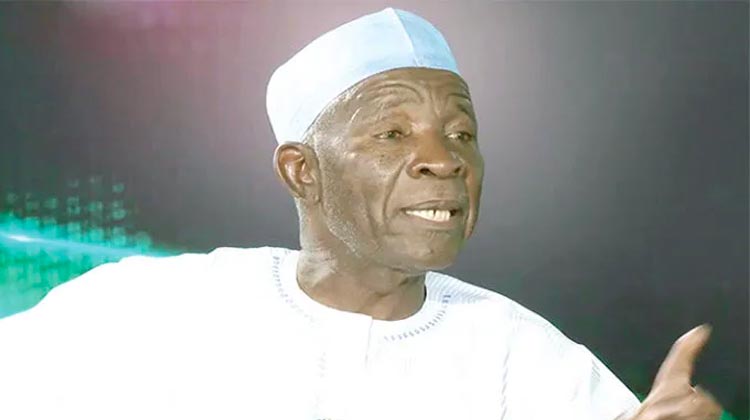Buba Galadima, a prominent member of the New Nigeria Peoples Party (NNPP) and a key figure in the Kwankwasiyya political movement, has publicly disclosed that President Bola Tinubu assisted his daughter in securing employment at the Nigerian Upstream Petroleum Regulatory Commission (NUPRC). This revelation, made during a televised interview on AIT, sheds light on the complex interplay of personal relationships and political dynamics in Nigeria. Galadima, known for his outspoken criticism of the ruling All Progressives Congress (APC), emphasized that his political stance does not preclude a personal friendship with Tinubu. He portrayed the job acquisition not as a political favor, but as an act of friendship extended by Tinubu to his daughter.
Galadima recounted the incident, explaining that his daughter, along with her siblings, used his phone to contact President Tinubu. The President, assuming the call was from Galadima himself, answered. The children, citing the challenging economic climate, appealed to Tinubu, referencing his friendship with their father. Specifically, Galadima’s daughter, a recent National Youth Service Corps (NYSC) graduate, expressed her difficulty in securing a position at the NUPRC. Tinubu, according to Galadima, responded swiftly and decisively, instructing them to contact Gbenga Komolafe, the head of the NUPRC, and secure employment for his friend’s daughter. This act of assistance, Galadima asserted, prompted his daughter’s desire to express her gratitude through a pilgrimage to Mecca, thanking both God and President Tinubu.
This narrative underscores the significance of personal connections within Nigeria’s political landscape. Even amidst political disagreements and public criticisms, personal relationships can often transcend these divides, leading to acts of assistance and support. Galadima’s willingness to share this anecdote publicly suggests a certain level of comfort and trust in his relationship with Tinubu, despite their differing political affiliations. It also highlights the president’s willingness to extend a helping hand even to those who publicly critique him.
Galadima’s account also included a seemingly contradictory claim regarding his daughter’s previous employment under the Buhari administration. He stated that his daughter worked for four years in Vice President Osinbajo’s office without receiving any salary. He challenged anyone to produce evidence of payment, emphasizing that she served diligently without financial compensation. This assertion raises questions about the nature of her role and the reasons behind the alleged lack of remuneration. It potentially suggests a situation where loyalty and personal connections superseded formal employment arrangements.
This entire narrative paints a complex picture of patronage, personal relationships, and political dynamics in Nigeria. It showcases the informal networks and influences that often operate alongside formal structures and processes. The anecdote provides a glimpse into the human side of politics, where personal connections can influence decisions and outcomes, even in the face of public political disagreements. Galadima’s open disclosure of these events invites further scrutiny and analysis of the interplay between personal relationships and political power in Nigeria.
The implications of this revelation extend beyond the personal anecdote. It raises broader questions about the role of patronage and informal networks within the Nigerian political system. While personal connections can be a source of support and opportunity, they can also raise concerns about fairness, transparency, and equal access to opportunities. The incident highlights the need for stronger institutional frameworks that promote meritocracy and minimize the potential for undue influence based on personal relationships. It also underscores the importance of a vigilant and independent press that can scrutinize these dynamics and hold those in power accountable.
Ultimately, Galadima’s story serves as a microcosm of the complexities inherent in Nigerian politics. It reveals the often blurred lines between personal relationships and political dealings, and it raises important questions about the balance between personal loyalty and the public interest. The incident calls for deeper reflection on the ethical implications of such practices and the need for greater transparency and accountability within the political system. It also highlights the enduring influence of personal connections in a society where formal institutions are often perceived as weak or ineffective.














